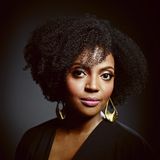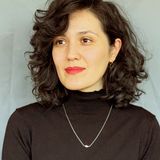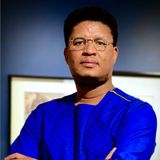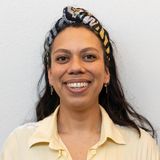Note: due to a technical issue, the sound of Lekgetho Makola (via zoom) is unfortunately inaudible. // Manually click on the subtitles for English subs!
Many of us are looking for content that speaks to a wider, more diverse audience. Image makers like photographers, illustrators and graphic designers produce representations of society and they help create access to information and ideas. As such, they have an additional responsibility to lead the way in deconstructing and updating imaging to make it representative and inclusive. The visual choices we make influence who gets access. In their DCFA Fellowship, Seada Nourhussen and John Olivieira of OneWorld will invite designers and other experts to expose the design flaws in journalism and explore solutions and practical changes to redesign it. How well do your visual choices represent your audience? How do we battle exclusion, stereotyping and tokenism in imaging? Who gets to be represented? How do we visualise stories in a fair and inclusive way?
Photographer Cigdem Yuksel started her photography career at Dutch newspaper de Volkskrant, focusing her lens mainly on migration, refugees and identity. In May 2016 she traveled to the Turkish city of Gaziantep with two reporters to make a harrowing portrait series of Syrian child refugees working in textile and shoe factories. Upon her return she was awarded the prestigious Zilveren Camera award. In the past two years her focus has shifted to perception and the power of the photographer. For that reason she started a study of our collective visual memory and the visual representation of Muslim women in the Netherlands. This has resulted in a much-discussed research report from 2020, in which she examined the representation of Muslim women in the image database of the Dutch press agency ANP. At the moment, Cigdem has started portraying the first generation of Turkish women in the Netherlands to create a new visual archive.
Currently a CEO at The Javett Arts Centre (University of Pretoria) and formerly Head of Market Photo Workshop, Lekgetho James Makola sits on the International Advisory Committee to the Board of CatchLight – San Francisco, and was on the Curatorial Advisory Committee of the 2017 Bamako Encounters – Mali. He has been in the judging panels for a number of national and international Photography and Arts Awards in the past 5 years, including CAP prize, UPPA, Thami Mnyele Art award, W Eugene Smith grant, World Press Photo 2019 and in 2020 as Chair of General Jury. He participated as a reviewer in the 2018 New York Times Portfolio Review. Lekgetho invests his energies in shifting the trajectory of artistic intellectualism and the business of the artistic practices within the Continent of Africa, while advocating for the promotion of the arts culture as instruments of inspiration towards social justice and ‘political’ change for reimagined futures.
Rachel Morón is currently an image editor at NRC Handelsblad. Through her previous writing, and photographic research projects, she looked critically at the systems in which narratives and histories are told and recorded, focusing on themes such as identity and self-representation. This practice has formed the base of the work that she now conducts as an image editor at a newspaper at a national level. Rachel has a BA in photography from Hogeschool voor de Kunsten Utrecht, and an MA from Design Academy Eindhoven’s Master’s programme Critical Inquiry Lab (formerly known as Design Curating and Writing).
Seada Nourhussen is the editor-in-chief of OneWorld. In the past she worked as a columnist, domestic reporter and Africa editor at Trouw. She previously also worked as a cultural editor at Elsevier and was an economics and arts editor at De Volkskrant. She wrote the book ‘Bloedmobieltjes, Coltan in Congo’ (KIT, 2011), co-authored the collections WTF?! Growing up after September 11 (Prometheus, 2011), Away from Babylon (August, 2008), Zwart (Atlas Contact, 2018) and Afro-European literature in the Low Countries. Through her work and as a panelist or leader of conversations, she plays an active role in the portrayal of Africa and anti-racism. She is currently also working on a new book.











